Opinion
MAN LIKE WIKE
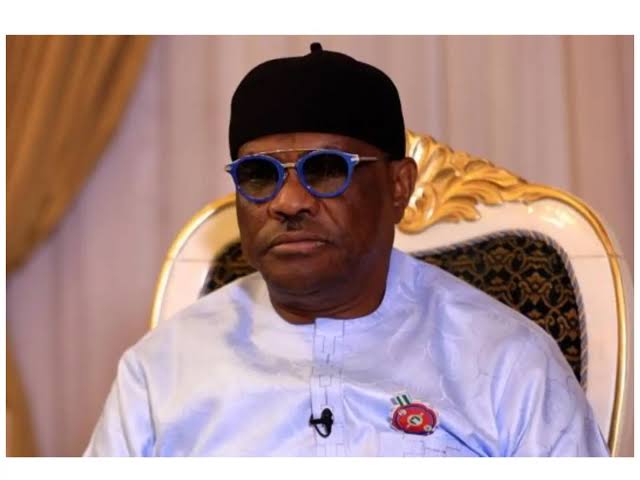
By Elder OSF
I don’t want this piece to be about the man Wike. But in truth I’m writing about him. I believe there’s a difference between writing about someone and writing of someone, or by someone and with someone.
Don’t mind me I’m just messing with you. It’s about Wike I’m writing, yes. Whether it’s of him or by, through or with him is, at best, misleading semantics.
There’s something in Wike that everybody should have. Yes, your mind has caught it too.
That relentless drive to push beyond limits, to chart new courses, to break barriers, is something every human being needs to have.
First off, Wike is not Jesus Christ. This is not about his values as a person. We will have to agree that our opinions on his values will be different, and that despite the difference we can examine his life to pick some lessons.
Why Wike, someone might ask. It’s because it is Wike. His story checks out well in the space we occupy as Nigerians. It is Wike. Everybody knows Wike – with all his flaws and accomplishments.
How Wike became a Minister, no I don’t mean being the Minister-Governor of Abuja, I mean being junior Minister of Education under President Jonathan, was by defying the odds placed before him by the political system of that era. It also involved facing stiff opposition by his erstwhile boss, our forever beloved CRA, the then powerful Governor of Rivers State.
How Wike became Governor, was by first refusing to cancel himself even on the basis of ethnicity, given that CRA whom he was seeking to succeed was of the same ethnic stock as he was in a multi-ethnic and diverse state as Rivers. He was relentless. He went the full nine yards and beyond. Some of his tactics are definitely indefensible but his relentless drive somehow counts for something.
How Wike ousted Atiku from being President, insisting on power rotation to the South, which favoured the incumbent President is itself worth studying. Make no mistakes about the fact that I am aware that there are various variants of narratives on how that happened. My interest is not the story. It is the fact that Wike got what he wanted.
He got more. He is the first Nigerian politician to influence the politics of both the ruling political party and its main opposition in his home State of Rivers. The very first person in history to accomplish that.
How does Wike’s mind work?
I’d tell you. It is solutions oriented. The impossibility of accomplishing anything has been so stifled in Wike’s thinking that it is impossible not to see possibilities, a way out of the myriad of complexities he navigates in the labyrinth of his daily political affairs. He is like a slippery fish. At least he’s proven to be that so far. You can’t hold him down.
Many times we’ve expected it to be the end of his political career, but somehow, he manages to wriggle himself out. Fayose his friend knows some things he has not told us. He only alluded to Wike’s opponents seeing spirits when they oppose him. But that’s not enough. What does Fayose know?
He knows how Wike’s mind works. He knows that Wike finds the way and where he can’t, he creates a new pathway.
This is how every human being should be wired. Wike’s creativity is not unique to him. But he has masterly mined the power of the human mind to his own advantage. Showing time and again, that impossibility is nothing.
As I said earlier, this is not about Wike. It is about the mind that powers his moves. If we can frame our minds like that and taint them with the values that we cherish, we will live more fulfilled lives.
This is how a regular guy from Rumuepirikom was able to be Governor of two Nigerian states back to back even without being a member of the political party of the latter.
Curse him for many reasons. He is a politician. He signed up for it. But when you’re done, give the man his flowers. He deserves them.
Elder OSF
Opinion
OF ABUJA INVESTMENT COMPANY, TAMUNO, WIKE, AND TINUBU’S “RENEWED HOPE” AGENDA
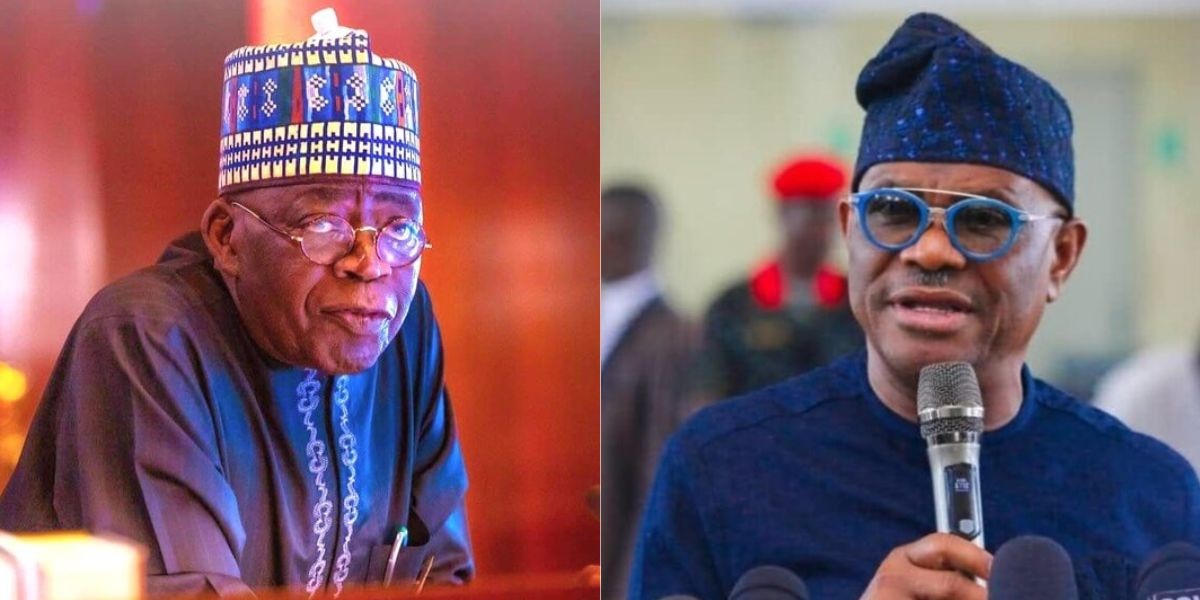
BY BOLAJI AFOLABI
Established in 1994 by the military administration of late General Sani Abacha, the Abuja Investments Company Limited, (AICL) is positioned as a government-owned investment enterprise charged with the responsibility to drive economic development in the federal capital territory. Its primary goal is to promote strategic investment and boost realistic economic growth of the FCT through different platforms and various approaches. Key functions of the AICL include Business Development; Investment and Development; Public-Private Partnership; Facility Management; and Infrastructure Development. The AICL has several subsidiaries and associates including Abuja Property Development Company, (APDC); Abuja Markets Management Limited, (AMML); Abuja Urban Mass Transport Company, (AUMTCO); Abuja Technology Village Free Zone; Abuja Film Village International Limited; PowerNoth/AICL Equipment Leasing Company. Others include Aso Savings and Loans PLC; Abuja Power Company Limited; Abuja Leasing Company; and Abuja Downtown Mall.
From 1994 till the exit of the military from national governance in 1999, the AICL recorded few achievements. During this period, the AUMTCO, and Aso Savings and Loans were established. With the dawn of democratic government in 1999, it was expected that the FCT, being an emerging federal capital will benefit hugely from the activities of the AICL. However, nothing much was achieved between 1999 and 2003. Somehow, Mallam Nasir El-Rufai, who administered the FCT from July 2003 to July 2007, was able to change the tide. Under his watch, the AICL came alive, recorded some measure of visibility and attracted positive public perception. Sadly, the AICL took a downward slide thereafter. None of the past ministers; Aliyu Modibbo Umar, Adamu Aliero, Bala Mohammed, and Muhammed Musa Bello provided the necessary political will and support for the AICL to maximally attain full potential. Indeed, it got worse between 2015 and May 2023 that many residents forgot that the company was still existing.
Many critical stakeholders were worried about the depth of neglect, static state, and institutional damage that the AICL was subjected to. Patterned after similar agencies in some developing nations, where measurable strides are achieved, the reverse happened with the AICL, that it became recurring causes of worries, and regrets to many people. Alhaji Aminu Mohammed, a former staff member of FCTA said, “it was shameful that the company remained largely dormant for many years.” Corroborating, Mr. Gilbert Gyang, an Abuja based investment expert declared, “the AICL, especially during the last administration was arguably comatose. It merely existed on paper, there was no visible investment initiative geared towards economic growth in the federal capital.” For Ms. Winifred Anosike, former banker, and development consultant, “it’s painful that the company was practically inactive for years. It was not only affecting economic growth in Abuja but impacted negatively on people and firms with result-driven initiatives who desired to contribute actively to the development of the capital city.”
With the emergence and subsequent inauguration of President Bola Tinubu on May 29, 2023, key players in the investment sector were hopeful that, the AICL may breathe again. Many hinged their thoughts on Tinubu’s background and experiences in accounting, financing, investment, governance, and leadership. Though with caveats; the choice of who minister’s FCT will be pivotal. Convinced that the AICL should be the “engine room” of economic growth and development of the capital city, many hoped that Tinubu will deploy the appropriate person to oversee the strategic ministry. Some stakeholders concluded that a wrong choice may consign the AICL into the “wilderness of inactivity” and likely extinction. Somehow, key players in the investment sector, at different fora and platforms were upbeat that Tinubu will pick the right person, who they hope will lead the way towards enabling the AICL to get back its mojo.
In August 2023, the deployment of Barrister Nyesom Ezenwo Wike as the Minister of the FCT; the 8th since Nigeria’s return to democratic government elicited public endorsement. Tinubu’s choice was largely celebrated by many stakeholders, as it renewed optimism about the prospects of AICL reviving its activities. Cognisant of Wike’s legendary achievements, as Rivers state Governor where he embarked on massive infrastructure development and more, turning the “Treasure Base” to the central investment hub in the South South zone, and emerging as second to Lagos state, many were confident that “light will come” to the AICL. A similar spate of enthusiasm and expectations was prevalent in and around the AICL. Many of the staff members also shared the positions.
The atmosphere at the Garki District offices of AICL on April 7, 2024 was ecstatic when news filtered in that Wike had appointed Dr. Maureen Tamuno as the Group Managing Director. A few hours later, it turned to frenzy after goggle checks were done by some staff members to have glimpses of her profile. Impressed, and satisfied with her multi-disciplinary academic background, and multi-faceted careers, her appointment was described as well-thought, and well-deserving. The unanimity of opinion was that, being a round peg in a round hole, the AICL will leverage on her far-reaching experiences and exposures as a former lawmaker, seasoned diplomat, public administrator, and boardroom strategist.
Aware and ready for the challenges ahead, many staff members were visibly excited when Tamuno assumed office the following day. Thus emerging as the first female chief executive of the AICL, since its 30 years of existence. Described as an accomplished technocrat with identifiable achievements in leadership, strategy, diplomacy, administration, and consulting, Tamuno, in her maiden speech confirmed the postulations of staff members. She emphasized her, “commitment to open-door policy to all staff, urging everyone to operate at the highest standard of transparency, confidentiality, accountability, and ethical business practices.” Continuing, she assured staff members that her, “strategic approach and consumer-centric philosophy are expected to propel the AICL to new heights of success.”
From reports, challenged by the enormity of the task ahead, conscious of the hugely untapped potential of the AICL, buoyed by the political support of Wike, and encouraged by the passion of the staff members, Tamuno literally hit the ground running. As a globally-recognized business development, management, and investment professional, she approached her assignment with iron-cast resolve, and the precision of a surgeon. First off, she embarked on critical reviews and overview of the AICL trajectory from inception; identified germane issues; evolved strategies for re-positioning the company; enunciated quick-wins, short-term, medium-term, and long-term measures for development, and some others. All these were geared towards delivering (or surpassing) the Ministerial mandate, and also ensuring that the AICL contributes its quota to Tinubu’s “Renewed Hope” agenda.
Indeed, it is imperative to note that the AICL, under the superintendent of Tamuno has literally drawn water out of rocks; which before now was largely unthinkable. That the soft-spoken and resourceful amazon; and her team were able to make noticeable impact within just one year, speaks volumes about her ingenuity, and indomitable spirit. In a broad sense, these achievements include encouraging economic diversification; expanding investment opportunities; exploring business and investment exchanges; deepening subsidiaries collaboration; and fostering diplomatic relationships.
In practical terms, the AICL, through some landmark initiatives has provided the platform for the promotion of trade and commerce, as well as economic growth and sustainable investment in the FCT. It is imperative to recall some of these laudable and trail-blazing projects. A few days back, the solar powered Farmers Market in Utako District and Kugbo International Market were commissioned by the FCT Minister of State, Dr. Mariya Mahmud. Speaking at the epoch making events, Mahmud eulogized Tamuno for completing the first-of-its-kind projects which, “would provide employment opportunities for a wide range of people in line with the “Renewed Hope” agenda.” While explaining that the projects are under the Public Private Partnership initiative of the AICL, Tamuno promised that, “under the Build Operate and Transfer (BOT) arrangement, the government will combine with the private sector to create profitable and sustainable public infrastructure. We identified Small and Medium Enterprises, (SMEs) as the backbone of any prosperous economy, because they create jobs that drive sustainable economic growth.” To underscore AICL’s commitment towards encouraging the informal sector, shops were gifted to some hardworking traders from all the six Area Councils of the FCT.
In October 2024, the AICL organized a two-day Abuja Business and Investment Summit with the theme: “Optimizing Investments Through Partnership.” The event, geared towards promoting investment opportunities in the FCT, was attended by major stakeholders in finance, investment, manufacturing, and other sectors. Participants opened new alliances, partnerships, and collaborations for new opportunities and innovations that will lead to micro and macro development. Tamuno, who by the way was one-time Nigeria’s Ambassador to Jamaica is leveraging on her diplomatic credentials and network to re-position the AICL. She is regularly engaging, and exploring investment opportunities with foreign countries through their diplomats in Nigeria. Through her participation at the maiden Nigeria-Kazakhstan Business Conference which was held in Abuja, in 2024, there are advanced plans for the establishment of city-to-city flights between both countries, as well as collaborations in agriculture, education, technology, logistics, and more.
Agreed, the journey is somewhat far but the AICL, under the new chief executive has shown unbridled commitment, and unflinching fervor in elevating the status, and relevance of the company towards engendering meaningful growth and development of the FCT. Tamuno has shown relentless drive and boundless energies towards justifying the confidence reposed in her by Wike. Posting an encouraging report-card in one year deserves commendations and encouragement. Mr. Olugbenga Okanlawon, an Abuja based public affairs analyst declared that, “she has shown that she is the right person for the job. Considering what the AICL has achieved in one year, it is clear that more grounds will be covered in terms of growth and development.” A frequent caller to the AICL who preferred anonymity said, “the GMD has brought a new lease of life to the place, and everybody has imbibed her can-do-it spirit with much pride, and belief.”
* BOLAJI AFOLABI, a Development Communications specialist was with the Office of Public Affairs, The Presidency, Abuja.
Opinion
Dismantling the false Narrative of a “Coup” in Rivers State
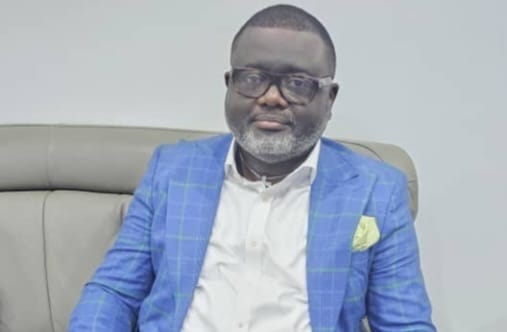
By Jones Onyereri
The assertions that President Tinubu’s intervention in Rivers State constitutes an unconstitutional power grab or a “military coup in civilian disguise” fundamentally misrepresent the legal, political, and security realities that necessitated federal action. Far from being a partisan maneuver, the declaration of a state of emergency and subsequent measures were lawful, proportionate, and grounded in the imperative to prevent a total collapse of governance and public order. Below is a thorough rebuttal to the allegations:
The Nigerian Constitution explicitly empowers the President to declare a state of emergency under Section 305 when there is a clear threat to public safety or a breakdown of governance. The escalation of pipeline vandalism by militants—which crippled economic activity, endangered lives, and exacerbated environmental degradation—coupled with the Supreme Court’s February 18 judgment highlighting governance failures in Rivers State, provided incontrovertible justification for federal intervention. The claim that “no emergency existed” ignores the state government’s demonstrable inaction in addressing these threats, which risked spiraling into wider violence. Emergency powers are, by design, temporary and exceptional, aimed at restoring stability, not undermining democracy.
The appointment of Admiral Ibok-Ete Ibas as Sole Administrator aligns with constitutional provisions for federal intervention during crises. Section 11 of the Constitution permits the National Assembly to legislate for a state in extraordinary circumstances, and the President’s action enjoys implicit legislative backing as a stopgap to avert anarchy. Admiral Ibas, a retired military officer with no overt political ties, was selected for his administrative expertise, not as a proxy for any faction. His mandate is strictly limited to stabilizing the state, facilitating the return to democratic governance, and ensuring the security forces can operate without partisan interference. To equate this with a “military coup” is hyperbolic and disregards the transparent, legal framework guiding his role.
Critics allege defiance of Supreme Court orders regarding state funds, but this misinterprets the interplay between judicial mandates and emergency executive authority. While the Court initially restricted financial flows to Rivers State due to governance disputes, the escalation of the crisis necessitated federal release of funds under the “doctrine of necessity” to sustain critical services like healthcare, education, and infrastructure. The Constitution prioritizes the security and welfare of citizens (Section 14(2)(b)), and the President’s duty to uphold this principle supersedes rigid adherence to procedural norms during emergencies.
The Sole Administrator’s actions, including the formulation of regulations and restructuring of local government administrations, operate within the bounds of his provisional mandate. These regulations require approval by the Federal Executive Council (FEC), ensuring oversight and accountability. The replacement of local government officials was not a “power grab” but a necessary step to dismantle networks complicit in revenue diversion or inefficiency. The Supreme Court’s insistence on democratically elected local governments remains sacrosanct, but interim appointments during emergencies are globally recognized mechanisms to restore functionality before elections can be organized.
Claims that the Administrator has overstepped by preparing a budget or appointing a Secretary to the State Government (SSG) ignore the practical realities of governance. In the absence of a functional State Assembly, provisional budgets based on existing frameworks ensure continuity of public services. Similarly, the appointment of an SSG—a routine administrative role—falls within the Administrator’s authority to maintain bureaucratic operations. These measures are neither permanent nor unconstitutional; they are transitional tools to prevent total institutional paralysis.
The narrative that this intervention serves Minister Wike’s political interests is speculative and distracts from its stated purpose. Restructuring boards and commissions, including the Rivers State Electoral Commission, aims to depoliticize institutions vital to free and fair elections. The focus on “Wike loyalists” assumes nefarious intent without evidence, whereas the Administrator’s appointments could equally reflect efforts to engage experienced personnel familiar with the state’s administrative landscape. The assertion that federal actions target Governor Fubara’s allies conflates routine accountability with persecution; in crises, restructuring is inevitable to eliminate inefficiency or bias.
Regarding the House of Assembly reconstruction, federal involvement ensures the project adheres to timelines and standards, avoiding further delays that could destabilize legislative functions. The Governor’s progress, while commendable, does not negate the need for independent oversight in a volatile environment.
President Tinubu’s intervention is neither indefinite nor authoritarian. Emergency measures will lapse once security is restored, and democratic structures are reinstated. The National Assembly retains the authority to review and curtail these actions under Section 11, ensuring checks and balances. To frame this as a “2027 political takeover” is a cynical distortion of a lawful, necessary intervention to prevent Rivers State from descending into chaos.
In conclusion, the allegations of a “civilian coup” or unconstitutional power grab disregard the constitutional safeguards and urgent pragmatic considerations guiding federal actions. The President’s duty to protect lives and livelihoods in Rivers State transcends political expediency. While vigilance against overreach is prudent, dismissing all stabilization efforts as partisan machinations undermines the legitimate pursuit of peace and order. The people of Rivers State deserve functional governance, not perpetual crisis—and federal intervention, however imperfect, is a constitutional means to that end.
Rt Hon Sir Jones Onyereri PhD, KSP, FCIPAN
April 12, 2025
Opinion
Tik Tok gets another lifeline from being banned

By Sonny Aragba-Akpore
On Saturday April 5,United States President Donald Trump announced an extension of 75 days for Tik Tok on his Truth Social platform, saying the TikTok deal “requires more work to ensure all necessary approvals are signed.”
He said he is signing an executive order “to keep TikTok up and running for an additional 75 days.”
With this development, the 170 million subscribers connected to Tik Tok in the United States of America (USA) have another 75 days to meander on the App unhindered.
This new deadline which an Executive Order covers follows the expiration of the first 75 days Order on April 5.
Tik Tok owners,ByteDance of China, have these 75 days to divest completely from the American operations or risk being sent to the dark or being banned.
China faces a 54% aggregate tariff on goods imported into the US, and has retaliated with 34% in counter tariffs.
Reports suggest several potential buyers for TikTok have cropped up in recent days.
Amazon has put in a last-minute offer to the White House to acquire the platform, according to Agency reports though the firm has declined comment.
Several other potential buyers include billionaire Frank McCourt, together with Canadian businessman Kevin O’Leary. Alexis Ohanian, who co-founded Reddit, has said he has joined Mr McCourt’s bid.
Computing giant Microsoft, private equity giant Blackstone, venture capital firm Andreessen Horowitz and search engine Perplexity AI are also reportedly in the running for a stake.
Trump has said his administration was in touch with four separate groups interested in a potential TikTok deal, though he has not named them.
Vice-President JD Vance is spearheading the administration’s effort to find a buyer.
The president has also suggested the US could offer a deal where China agrees to approve a TikTok sale in exchange for relief from US tariffs on Chinese imports.
“We hope to continue working in Good Faith with China, who I understand are not very happy about our Reciprocal Tariffs,” Trump wrote on Truth Social.
He added that the trade levies are “the most powerful economic tool, and very important to our national security”.
Trump granted TikTok a second 75-day extension to comply with a law that requires the hugely popular video app to either sell its US operation or face a ban in the country.
“We do not want TikTok to ‘go dark’,” Trump wrote on Truth Social. “We look forward to working with TikTok and China to close the Deal.” The platform is currently owned by Chinese company ByteDance.
Trump’s first extension was granted after he took office in January and this expired on Saturday,April 5,2025.
In a statement on Friday, April 4,ByteDance said it had been in discussion with the Trump administration, but “an agreement has not been executed”.
“There are key matters to be resolved. Any agreement will be subject to approval under Chinese law,” a spokesperson said.
Former US President Joe Biden’s administration had argued that TikTok could be used by China as a tool for spying and political manipulation.
Congress passed a bipartisan law last year that gave ByteDance six months to sell its controlling stake in TikTok or see the app blocked in the US.
Opponents of a ban have cited freedom of speech as a reason for keeping the platform open.
But the new extension comes as the Trump administration tries to broker a deal to bring the social media platform under American ownership, and keep the popular app running in the US.
“The Deal requires more work to ensure all necessary approvals are signed,” Trump wrote on his Truth Social platform on Friday.
The social media platform, which says it has more than 170 million users in the US, must close in the US under a law passed by Congress – unless a buyer is found.
Agency reports that a TikTok deal was nearly finalised on Wednesday last week but fell apart after Trump on the same day announced sweeping global tariffs, including on China.
Agency reports further explained that ByteDance representatives contacted the White House to inform them China would no longer approve the deal unless negotiations on the tariffs could take place .
Unnamed sources said the plan had been for Trump to sign an order initiating a 120-day period for closing the deal, allowing time to finish paperwork and secure financing.
The agreement had won approval from existing investors, new investors, ByteDance, and the US government, but China backed out once Trump imposed the global import taxes.
The Chinese embassy in Washington DC said in a statement that it “opposed practices that violate the basic principles of the market economy”.
A federal law signed by former President Joe Biden in 2024 effectively banned TikTok if it remained under Chinese ownership. The initial law called for the app to permanently go offline on Jan. 20, but Trump signed an executive order extending the deadline by 75 days.
The US TikTok ban, which received overwhelming bipartisan support, required TikTok’s parent, ByteDance, to divest the short-form video app over US concerns that it posed a national security threat.
US officials have long argued that the Chinese government, which is designated as a US adversary, could gain access to Americans’ TikTok user data for nefarious purposes or use the platform to spread propaganda.
The US law banning TikTok forces web service providers to stop hosting the app and requires Apple and Google to pull it from their app stores.
TikTok took a challenge to the law all the way to the US Supreme Court, arguing that it infringed on the company’s First Amendment and other constitutional rights. A group of TikTok users made similar claims in a companion case, claiming they, too, had been deprived of constitutional protections.
But the high court ruled in favor of the government, reasoning that TikTok, as a foreign entity, wasn’t entitled to constitutional protections and that national security concerns outweighed the government’s restriction on TikTok use. The court also said the law was limited in its infringement on free speech because social media users could access and post on other social media platforms.
The Act to ban Tik Tok if it did not divest its operations in the USA was signed with broad support from Republicans and Democrats.
Although some lawmakers had urged President Joe Biden to grant a reprieve to prevent TikTok from going dark in the U.S. as soon as Jan. 19,2025 ,the TikTok ban had already resulted in a number of “TikTok refugees” who moved to another Chinese app, RedNote, short for “Little Red Book.” RedNote became the most downloaded app in Apple’s app store in the U.S. the week leading up to the Supreme Court’s decision. If this trend continues, this “migration” to a similarly situated app might defeat the purpose of the Act. The TikTok ban illustrates how U.S. regulatory actions are designed to mitigate potential threats posed by foreign adversaries, significantly increasing compliance requirements for cross-border investments and technology operations. Particularly, the Supreme Court’s decision upholding the TikTok ban underlines the trend of intensifying scrutiny of foreign-controlled entities that collect or handle sensitive data in the U.S.
Although it’s not clear whether there will be a reprieve for Tik Tok,there are strong indications that the Trump administration needs more time to understand the situation and perhaps to be the one to implement the ban.
TikTok has 1,925 billion users globally, with 170 million monthly active users in the United States.
The average daily time spent on TikTok has more than doubled from 27 minutes in 2019 to 58 minutes in 2024.
The most popular categories on TikTok are Entertainment, Dance, and Pranks, with billions of views each.
Top influencers on TikTok include Charli D’Amelio, Khabane Lame, and Addison Rae, each with tens of millions of followers.
TikTok’s user base has grown exponentially from 133 million in 2018 to over 1,925 billion in 2024.
Daily active users on TikTok have skyrocketed into the millions, reflecting the platform’s ability to engage users on a daily basis.
In the year 2020, Trump issued an executive order citing TikTok’s ability to capture vast amounts of user data as a significant national security threat. The order sought to prohibit certain transactions involving ByteDance but was blocked by federal courts.
Subsequently, the Trump Administration directed ByteDance to divest its U.S. TikTok operations and user data, but these efforts were stalled as negotiations with the president Joe Biden Administration aimed at a nondivestiture agreement failed to resolve the government’s concerns.
ByteDance’s proposed national security agreement was ultimately deemed insufficient to mitigate risks posed by Chinese control. Against this backdrop, Congress enacted the sale-or-ban law, further targeting TikTok and similar applications.
> According to the Supreme Court’s finding, TikTok’s ultimate parent company, ByteDance, is a privately held company that has operations in China. ByteDance owns TikTok’s proprietary algorithm, which is developed and maintained in China. The company is subject to Chinese laws that require it to assist or cooperate with the Chinese government’s intelligence work and to ensure that the Chinese government has the power to access and control private data that the company holds.
Underscored in the decision, TikTok’s extensive data collection from more than 170 million U.S. users could be exploited for surveillance, public influence campaigns or other harmful purposes that threaten national security. The Act and the holding reflect Congress’ and the Supreme Court’s efforts to address growing concerns over foreign adversary-controlled applications through the access to sensitive data of U.S. nationals and the resulting potential risks to U.S. national security.
-
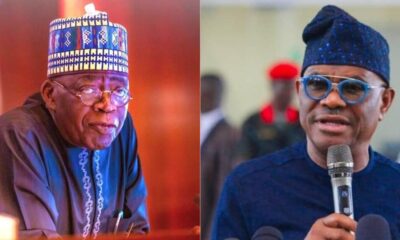
 Opinion24 hours ago
Opinion24 hours agoOF ABUJA INVESTMENT COMPANY, TAMUNO, WIKE, AND TINUBU’S “RENEWED HOPE” AGENDA
-

 News6 hours ago
News6 hours agoFire engulfs presidential villa
-
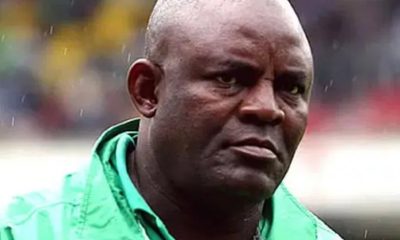
 Sports24 hours ago
Sports24 hours agoSAD! Most popular ex-national football team captain, Christian Chukwu is dead
-

 News6 hours ago
News6 hours agoBig waste! Man with PhD in Maths works as cleaner, messenger in Nigerian University
-

 Education6 hours ago
Education6 hours agoJAMB releases 2025 mock UTME results
-
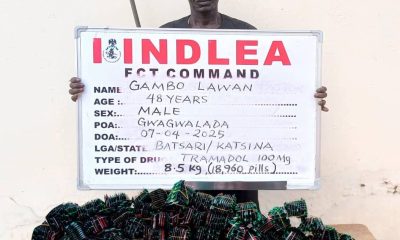
 News7 hours ago
News7 hours agoNDLEA interdicts Malaysian returnee with meth consignment concealed in music speakers(Photos)
-

 Sports23 hours ago
Sports23 hours agoJust in: Arsenal draw Brentford as silverware hope continues to dwindle
-

 Economy5 hours ago
Economy5 hours agoSEE Current Black Market Dollar (USD) To Naira (NGN) Exchange Rate




